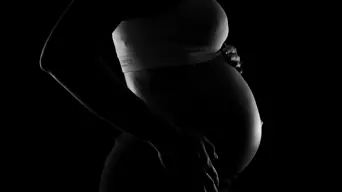SA’s shocking childbirth stats: More than 2,000 pre-teen mothers in one year
Celeste Martin
6 November 2025 | 10:18According to Statistics South Africa, over 123,000 births were recorded among mothers aged 19 and under between January 2024 and February 2025.
- Early Breakfast with Africa Melane
- Africa Melane
- Pregnancy
- Teenage pregnancy
- Teenagers
- Sexual abuse
- Statutory rape
- CapeTalk
- 702

Pregnancy / Pexels: João Paulo de Souza Oliveira
New figures from Statistics South Africa have revealed a deeply troubling trend: between January 2024 and February 2025, more than 123,000 births were registered to mothers aged 19 and below, including 2,108 births to girls as young as 10 to 14.
The data has reignited concern about child pregnancies and the health risks they pose for young girls.
Obstetrician and gynaecologist Dr Kasturi Moodley said that while the onset of menstruation may signal biological readiness for reproduction, the bodies of young girls are not yet physically or emotionally prepared to carry and deliver a baby.
"The brain decides to switch on ovaries at age 10, 11, 12 in terms of bringing on a menstrual cycle. When the brain initiates that or starts that, it is essentially saying that this body is now ready to have a baby. That's the primary goal of a menstrual cycle. So physiologically, yes, it is starting that process.
"A young child or teenager is not quite ready to actually go on to grow another human being, because that little young body has not yet developed completely. So physically, it certainly can take quite a toll on a young body in terms of growing another human being, in terms of being able to deliver a little baby. So, from a physical point of view, it certainly can take quite a toll – not only for the acute in terms of pregnancies happening, but certainly for the delivery and thereafter.
"Pregnancy is not an easy feat by no means... for even a person who has planned for it to happen. It's very, very, very challenging for a young person."
Moodley warned that many girls in this age group do not understand what is happening to them, leading to delayed disclosure and lack of medical care.
Without proper antenatal support, Moodley noted that these children face life-threatening risks, including haemorrhage, trauma, and even death.
"You will almost never get a young person who will come forward to actually confess that they don't know themselves what is actually happening. So oftentimes, they have no idea what is happening to themselves. So, they don't come forward to tell another person, a mum, a teacher, or what is actually going on and then they go into labour. They still have no idea what is going on.
"So, they put themselves at risk, not knowing. I think in the majority of instances it's an unknown, as opposed to that I'm hiding it from you. When a person has antenatal care, comes to a hospital, a pregnancy is still always high-risk because so many things can go wrong. That is the reason why we are here to ensure that if something does, then we are here to prevent it or we are here to make sure that we are on top of it."
The statistics, Moodley emphasised, should act as a call to action for the protection of young girls and the enhancement of education and healthcare access.
To listen to Dr Kasturi Moodley in conversation with 702 and CapeTalk's Africa Melane, click the audio below:
Get the whole picture 💡
Take a look at the topic timeline for all related articles.















